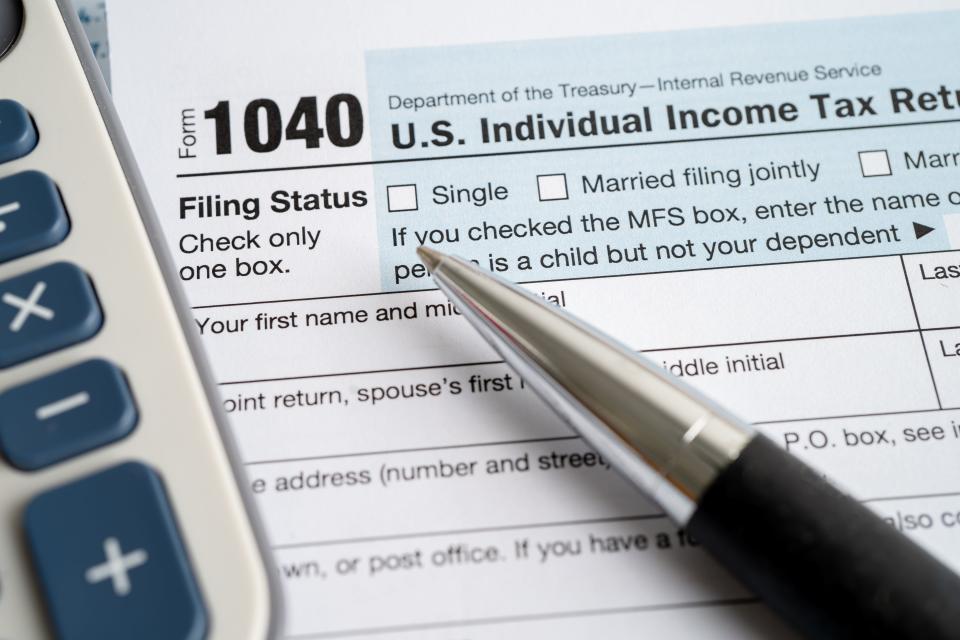Wondering where your refund is? Here's everything you need to know about this tax season.
Tax season began about a month ago, and some people are probably starting to see their refunds hit their bank accounts.
But if you're like the majority of Americans, you probably haven't filed your taxes yet. Here's what you need to know about how to file, where your refund is and how long you can expect to wait.
More:Daylight saving time is starting soon. Here's when clocks spring forward
How long do I have to wait for my tax refund?
Most people receive their refunds within 21 days of filing their tax returns, according to the Internal Revenue Service. You can check the status of your refund using the IRS' "Where's My Refund" tool 24 hours after you file.
However, your return could be delayed if it requires additional review. This affects:
People who were victims of identity theft or return fraud.
Anyone filing for an Earned Income Tax Credit or Additional Child Tax Credit (these refunds couldn't be issued before mid-February).
People whose return requires a manual review.
What's the fastest way to get my tax refund?
The fastest way to receive your refund is to set up a direct deposit to your bank account. You can choose to receive your refund as a physical check that will be mailed to your address, but that generally takes longer.
In addition, filing online ensures your return will be processed quicker than if you do it by paper through the mail.
Starting this year, if your adjusted gross income is under $73,000 you can use the IRS' Free File Program to get guided tax preparation that helps you through every step. Any taxpayer can also use Free File Fillable Forms through the agency or any third-party tax service.
More:What's ahead for the Austin-area housing market? Check out these highlights
How long can I put off doing my tax return?
You have until April 18 to file your federal income taxes this year — not state taxes, though, because Texas doesn't require residents to file a state income tax return.
Generally, the last day to file taxes is April 15, but since that falls on a Saturday this year and the next Monday, April 17, is Emancipation Day — a recognized holiday in Washington — the deadline was extended to Tuesday, April 18.
However, if you need a bit more time, you can file for an extension. The deadline to file for that extension is also April 18, and it gives taxpayers an additional six months to file. So if you request an extension, you'll have to file your 2022 taxes by Oct. 16.
There are a couple of ways to request an extension:
Fill out a 4868 automatic extension application using your personal computer, a tax professional or a paper copy.
Pay all or some of your estimated income tax with IRS Direct Pay, the Electronic Federal Tax Payment System, or a debit or credit card; just be sure to indicate the payment is for an extension.
More:Border security, tax relief among top priorities in Texas House, Senate budget proposals
What do I need to file my tax return?
Your tax records, for starters. They include a W-2 from your employer, or it could be a 1099-K, a 1099-MISC or any other income statement from your employer.
If you were paid through unemployment, a pension, a retirement fund or dividends, you'll also receive a 1099 form to file your taxes. If you made money from any type of interest, you'll receive a 1099-INT.
How do I get my tax forms?
Your employer provides most of these forms. by this point in the year, you should have received your W-2 or 1099. However, if your W-2 was incorrect and you requested that your employer fix it, you should have received the corrected version by the end of February.
If your employer hasn't corrected your W-2, you can file a complaint by calling 800-829-1040 or scheduling a visit with an IRS Taxpayer Assistance Center.
More:Austin City Council passes ordinance to increase pay for police, cadets
I lost my refund. Is there anything I can do?
Yes. You can use the "Where's My Refund" tool at irs.gov/refunds, call the automated service at 800-829-1954 or speak with an IRS agent by calling 800-829-1040.
If your refund check wasn't cashed, you'll get a replacement after the original is canceled. However, if the check was cashed, you'll receive a claim package through the Bureau of the Fiscal Service.

This article originally appeared on Austin American-Statesman: Where is my tax refund? Check out this guide to 2023 tax season
